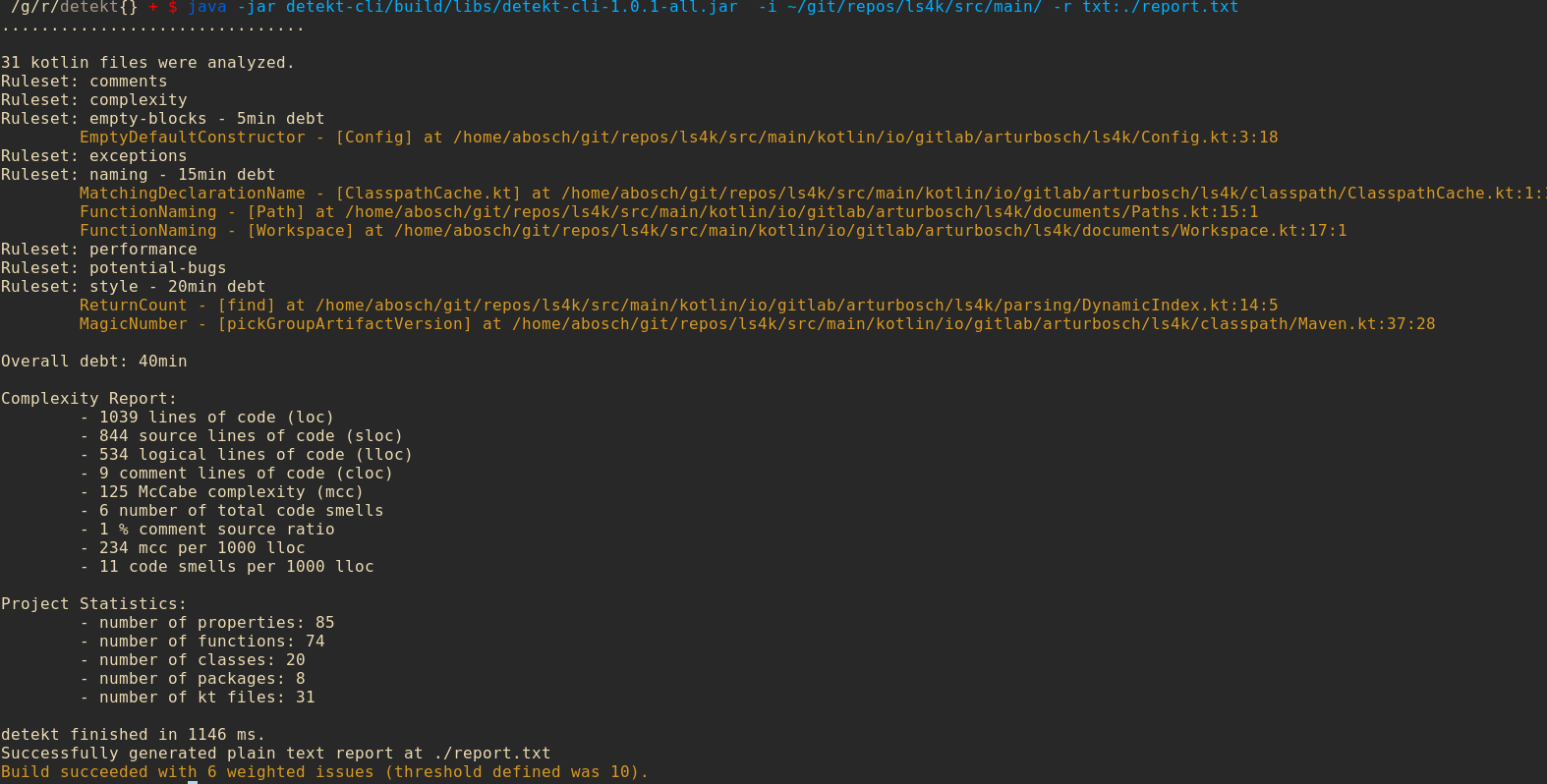detekt's ./gradlew detektGenerateConfig task copies the default configuration file to the location
specified by the config property.
detekt {
...
config = files(...)
...
}
When the file on this location already exists, your configuration won't be overwritten, and the task is a noop.
When we release a new version, some users like to generate the default one to compare changed properties.
This can be done by running the detekt cli with the --generate-config --config [/new/location] flags.
When already using Gradle, we can write a custom task and share this procedure with the team:
import io.gitlab.arturbosch.detekt.DetektGenerateConfigTask
val createDetektConfigForDiff by tasks.registering(DetektGenerateConfigTask::class) {
description = "Generate newest default detekt config"
config.setFrom(buildDir.resolve("detekt-diff.yaml"))
doFirst {
// optionally delete the old config diff file first
}
}
The last step involves calling your favorite diff tool (e.g. diff detekt-diff.yaml my_config.yaml) or using an online service like http://incaseofstairs.com/jsdiff/.
Likewise we can diff the default config of detekt version X with the default config of detekt version X-1. This will tell us which properties are new in version X.

